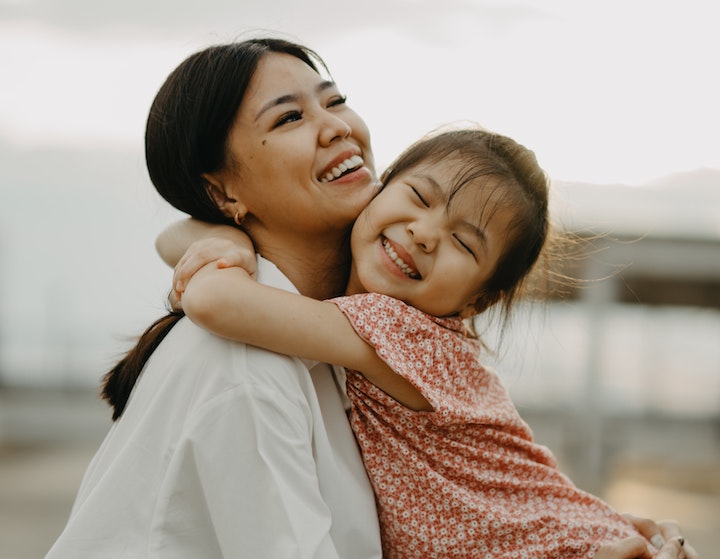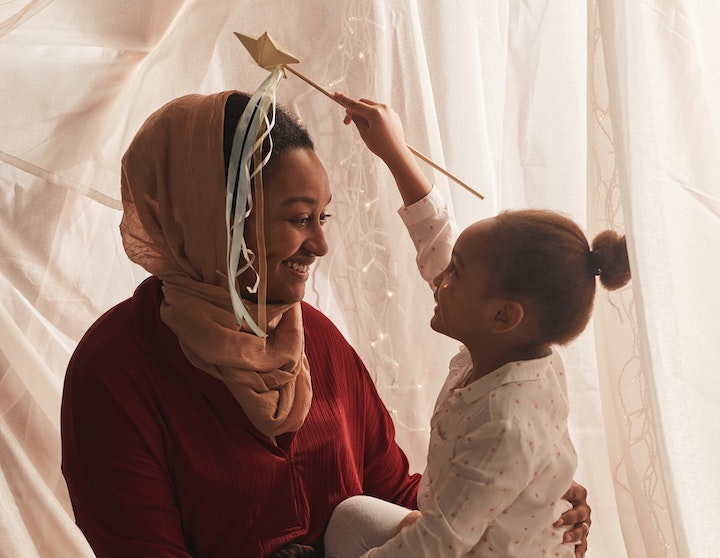
 Post Category - ParentingParenting - Post Category - Older KidsOlder Kids
Post Category - ParentingParenting - Post Category - Older KidsOlder KidsShould the relationship you have with your child be one of best friends and confidants or ‘enforcer’ of boundaries, discipline and limits?
Sharing a special bond with your child is important, especially as they enter tween and teen years. My kids are 12 and 15, and in the not-too-distant future, as scary as it sounds, I hope to be able to sit and have a drink with them, chat about their love lives and be able to share my past experiences of funny university antics. I want to have a relationship with them that was far from what I had with my Asian parents growing up in the 70s and 80s.
When the kids are young, the mother-child-parent relationship is pretty uncomplicated – we lead, they follow, we set the rules and boundaries, they follow, we provide, they take without question. As they grow older however, that relationship changes. Kids from the age of 9 or 10 onwards become more independent, they start developing their own individual personalities, they become more assertive, they start pushing back. As mums and parents, we then have to walk a fine line between being the ‘enforcer’ of boundaries, discipline and limits – and a ‘friend’ in order to keep the two-way communication flowing.
Read More: 7 Habits to Strengthen Your Parent-Child Relationship
Are you a disciplinarian mum?
Parenting in today’s world is not how it was when I grew up. We did what our parents told us, it was all their way or the highway. As teenagers did that work for you? Did you ever rebel, or do things you should not have? And parents were none the wiser.
When you lay down strict rules and boundaries during times when children crave their independence, it can have a knock-on effect of rebellion. Kids are far cleverer than we think or give them credit. They become very resourceful and will find ways to go against your word. The trick here is to ensure you build a deep connection with your child, a tight bond where they feel safe, secure and loved. When your relationship is grounded in open dialogue, honesty and trust, you can then provide healthy boundaries, but trust that your child will make safe and wise choices for themselves.
Or are you a best friend mum?
Being a ‘friend’ means accepting someone for who they are, respecting and supporting them through their different stages in life. When you treat your tween and teens with respect and give them space to flourish in their independence – they are more likely to come to you and tell you what they are up to, when they need help, and yearn for your advice.
It’s always nice to know that your kids view you as their friend – someone they can confide in, ask awkward questions, bring up issues such as bullying and eventually alcohol and sex. However, there comes that fine line – being their best friend can also backfire. Does being their best friend mean you are less comfortable setting boundaries? Are you paving a way for them to become adults way too prematurely? For example, there are parents that let their teens as early as 13-14 years sit and have an alcoholic beverage with them – would this then be giving them the right of passage to go out on benders with their peers?
There is a thought that mums who try to become best friends with their teenage children end up leaving them motherless at a time when they really need a mum the most.
‘Best friend parents’ who avoid setting boundaries

Sometimes it’s hard to be a friend to your child and at the same time serve-up punishment or consequences when they are in the wrong. As a Kids Life Coach, I often get parents who ask me to step in as a ‘Secret Parent’, play bad cop, and talk to their kids about the dangers of too much screen time, what time they should go to bed, and do some goal-setting for instance – around gaming hours, and healthy eating. All this so that they can avoid setting these important healthy boundaries as parents themselves.
Can I be ‘best’ friends with my kids and discipline them?
You can be your child’s role model, their mentor – someone they trust, listen to, confide in and respect. You don’t have to be their best friend to assume this status. As a mother and a parent, our role is to provide our children with boundaries and limits, giving them guidance, setting rules and when needed, discipline and consequences. When you do set boundaries, it’s really important to be rock-solid and united. Don’t flip flop on what you have agreed. Be consistent and stand your ground. Your children need and strive for routines, one set of rules with clear limits and consequences to follow suit.
As their key adult in life, you need to offer your children direction, as they will be looking to us to steer their ship. I often tell the parents that I coach that we need to act as our kid’s substitute frontal lobes for well into their early adult years. Did you know it takes up to 25 years to grow one? As parents it is up to us to provide our children with the brain function of regulation, motivation, organisation, prioritisation, and making good choices. Our children’s frontal lobes are still developing, so we need to set limits that are meaningful and predictable. In time, with our teens, we need to start letting go gradually so that they start to make healthy, safe and wise choices for themselves.
Is it too late to have a better parent-child relationship?
If you have this far been the disciplinarian, it’s not too late to change tact and build a friendlier relationship with your child (whilst encouraging their respect for your rules). Start connecting with your children as early as possible (read my tips here for how). By this I mean really spending time to listen and see the world through their eyes. Understanding their feelings and emotions by getting them for who they are – a sensitive 7-year-old boy or feisty 11-year-old girl – whomever they are as they are still figuring it all out. When we form this deep connection with our young ones this can then pave the way for easier communication when they become more independent tweens and hormonal teens.
Good luck on your parenting journey mamas and dads. If you have any questions on building better relationships with your kids – do get in touch – I’d love to hear from you!
Read More: How to Manifest Your Best Year Yet






 View All
View All




 View All
View All









 View All
View All




